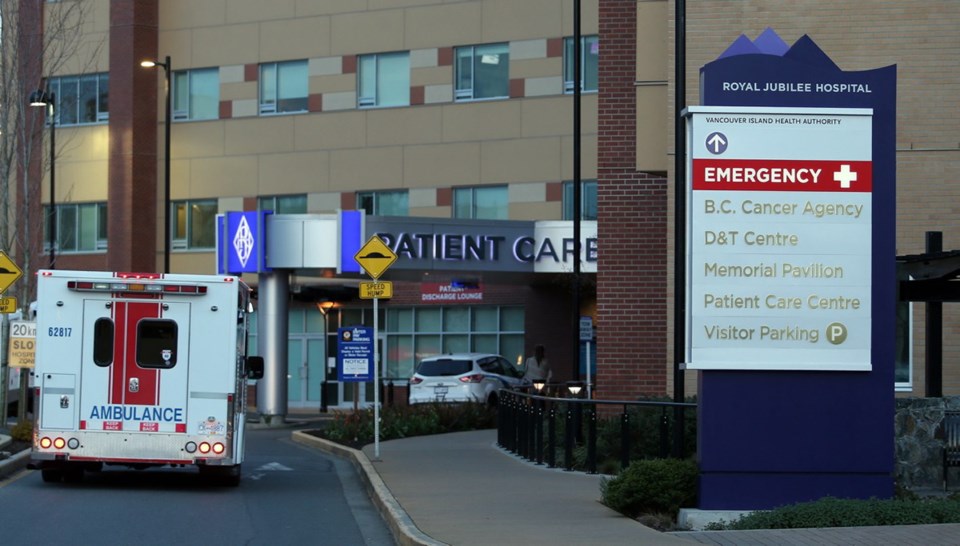While officials scramble to set up places where illicit drugs can be safely injected, addicts wanting to get clean and sober are looking at wait-lists for detox — the first step on the road to recovery.
It makes no sense whatsoever, said Carole James, B.C. NDP MLA for Victoria-Beacon Hill.
“We’re hearing that the fentanyl crisis has people who are ready, ready to go to detox,” James said.
“Everyone who works in the addictions field knows that in order to be successful, you have to grab someone when they are ready.”
Island Health is applying to open three supervised injection sites in Victoria. Such sites offer a hygenic place in which users can inject drugs under the supervision of health professionals. In the meantime, it plans to open temporary overdose-prevention sites.
There were 755 fatal drug overdoses in B.C. between January and November, an increase of more than 70 per cent increase over the same period in 2015. The opioid fentanyl has been linked to about 60 per cent of drug deaths in B.C. this year.
Island Health spokeswoman Kellie Hudson said 45 people are on a wait-list for the 21-bed detox unit at Royal Jubilee Hospital. That is more than double the usual number, but isn’t out of the norm for the Christmas season, especially given the cold weather, she said.
Twenty of those on the wait-list are “active and ready for treatment.” The emergency department or mental-health care team would like to see the others attend detox, but the client might not be ready.
Wait times for a bed range from three to 11 days, with the average being six to seven days.
Hudson said individuals are prioritized by need, with pregnant women and those with a treatment date or who are in the hospital topping the list. Completing the detox program requires a stay of seven to 10 days.
“The window of opportunity for people for when they are willing to make change … is so fleeting,” said addictions counsellor Sue Donaldson, founder of Pegasus Recovery Solutions.
Donaldson said she has been working with parents of adult children in the grips of addiction who are frustrated by the lack of access to services. Some have even wrestled with the dilemma of whether to buy illegal drugs for their kids while they await a bed, she said.
“If we aren’t there with resources and support, adequate to the task of actually treating the disease, not just the symptom of dependency … then we’re just letting people down,” she said.
Both James and Rob Fleming, NDP MLA for Victoria-Swan Lake, say the province has to fulfil its commitments for more recovery resources.
“We’ve got first responders who’ve done a heroic job of keeping people alive — reviving people who have overdosed,” Fleming said.
But the province is “completely under-investing in the kinds of treatment options that we need to help people who want to get off drugs entirely, get into treatment and try to normalize their lives,” he said.
“Detox would be the first step for most people who are coming off a period of heavy drug use and then once they’re stabilized, it’s treatment and there are very, very few treatment options.”
The Ministry of Health said it is committed to reaching its goal of opening 500 substance-use beds.
“In fact, we expect to have opened 400 new beds by the end of January, and we expect to have met the 500-bed commitment by the end of March,” the ministry said in a statement.
The province said individuals who say they want to deal with their substance-use issues are connected with publicly funded services including counsellors, sobering and assessment beds, non-profit societies and drop-in programs.
James said the province has ignored the issue of mental health and addictions for the past decade. “Now they’re putting Band-Aids in place. They’re trying to deal with the crisis when we should have been putting in those supports in the first place.”
Marshall Smith, chairman of the B.C. Recovery Council, said the fentanyl crisis “has shined a light on some glaring gaps in the system.”
“In a perfect world,” there would be immediate treatment on demand, he said.
“The reality is, is that the nature of living on the streets and interacting with a complex system doesn’t always provide for a perfect system. Often the system that we have is complex and difficult to navigate, and people who are in the grip of addiction drop off the radar and reappear at times that are not always consistent with ways that the system can best accommodate them.”
“This is a critical time when all parties — government, service providers, public, private, not for profit — need to come together and work together toward common solutions.”



